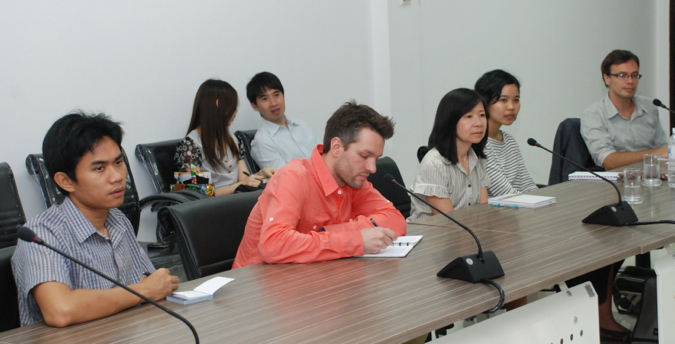Delivering their talks were three authors of recently released books,
who addressed various aspects of land transport while focusing on urban
transport and climate change issues.
Leading the discussion was Dr. Shobhakar Dhakal of AIT’s School of
Environment, Resources and Development (SERD), who remarked that Asia
enjoys a latecomer’s advantage. Cities are being created and Asian
lifestyles are still modest. This provides a greater flexibility in
shaping the transport sector with a tremendous opportunity for
incorporating sustainability, he reasoned. Dr. Shubhakar is co-editor
of a book “Low Carbon
Transport in Asia: Strategies for Optimizing Co-benefits.”
Dr. Surya Acharya, Senior Research Fellow, Institute for Transport
Policy Studies, Tokyo, Japan, provided a comparative analysis of metro
projects in major cities in the world to stress that while the Bangkok
metro was earning more than its operating cost, Delhi was close behind.
However, cities like New York and Paris were able to recover only 60
per cent of their operating costs. He stressed the need of allocating
more city area as road space. “The challenge for Asian megacities is to
select the most relevant strategies in the Asian context,” he added.
Dr. Acharya is co-editor of a book titled “
Transport Development in Asian Megacities.”
Mr. Stefan Bakker, Team leader of the project “Transport and Climate
Change”, ASEAN-German Technical Cooperation, GIZ, stated that
Greenhouse Gases measurement is a new element in the transport sector.
He remarked that managing the transition to a low-carbon economy would
be a major challenge. Drivers of unsustainable transportation include
economic, technological, socio-economic and cultural factors. Mr.
Bakker is co-editor of a book titled “Low Carbon
Land Transport: Policy Handbook.”


